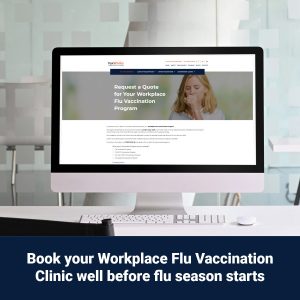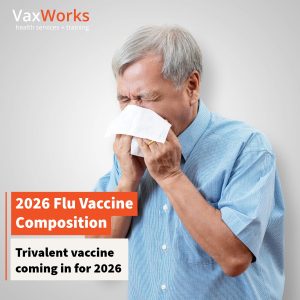Safeguarding Education: The Crucial Role of Pertussis Vaccination for Educators and Administrative Staff
Education is the cornerstone of societal progress, and those who contribute to its smooth functioning—both educators and administrative staff—play a pivotal role in shaping the future. As we focus on creating conducive learning environments, it is paramount to address health concerns that can impact everyone within the educational ecosystem, from daycare & primary school right through to high university.
Pertussis, commonly known as whooping cough, is a highly contagious respiratory disease that poses a significant threat to educators, administrative staff, and especially children and babies. In this article, we explore the importance of pertussis vaccination for educators and administrative staff, highlighting the broader implications of ensuring a healthy learning environment.
What is Pertussis?
Pertussis is caused by the bacterium Bordetella pertussis and is characterized by severe coughing fits, often accompanied by a distinctive “whooping” sound during inhalation. While the disease can affect individuals of any age, it can be particularly severe in infants, posing a life-threatening risk. Given the close proximity and frequent interaction in educational settings, educators and administrative staff alike can become vectors for the transmission of pertussis, making vaccination a crucial preventive measure for all.
Protecting Educators and Administrative Staff
Educators and administrative staff, as frontline workers in the education system, are not only responsible for imparting knowledge and managing the administrative aspects but also for ensuring the well-being of their students and colleagues. By getting vaccinated against pertussis, they not only protect themselves from the potential complications of the disease but also contribute to the overall health of the educational community. Vaccination is a proactive step in preventing the spread of pertussis within schools and other educational institutions.
Herd Immunity and Educational Settings
Herd immunity, the indirect protection from infectious diseases that occurs when a large percentage of a population becomes immune, is particularly vital in educational settings. The close contact and shared spaces within schools create an environment conducive to the rapid spread of diseases like pertussis – even more so in a daycare setting. Educators and administrative staff, by getting vaccinated, contribute to the overall immunity of the educational community, reducing the risk of outbreaks and protecting vulnerable individuals, including young children who may not yet be fully vaccinated.
Ensuring Continuity of Education
Pertussis outbreaks can lead to disruptions in the education system, with daycares or schools having to close temporarily to prevent further transmission. Such disruptions can impact the continuity of learning and care for students and create additional challenges for educators and administrative staff alike. By prioritising pertussis vaccination, everyone involved in the educational process actively participates in maintaining a stable learning environment, minimising the chances of interruptions and ensuring a smooth educational experience for all.
Conclusion
Pertussis vaccination for educators and administrative staff is not just a personal health decision; it is a commitment to the well-being of the entire educational community. As we strive to provide a safe and nurturing environment for learning, ensuring that all individuals within the educational ecosystem are protected against preventable diseases like pertussis is a fundamental step. By taking the initiative to get vaccinated, educators and administrative staff contribute to the broader goal of creating resilient and healthy educational spaces for everyone.
Through our occupational immunisation programs, we can arrange for a pertussis vaccination clinic to be run at your workplace. You may like to add this to your workplace’s onsite flu clinic. Contact us for a quote today.




